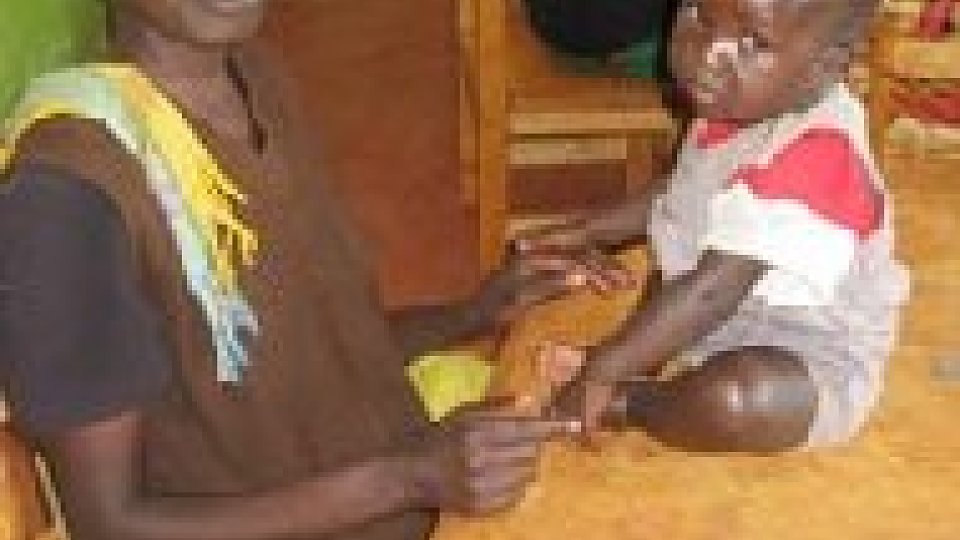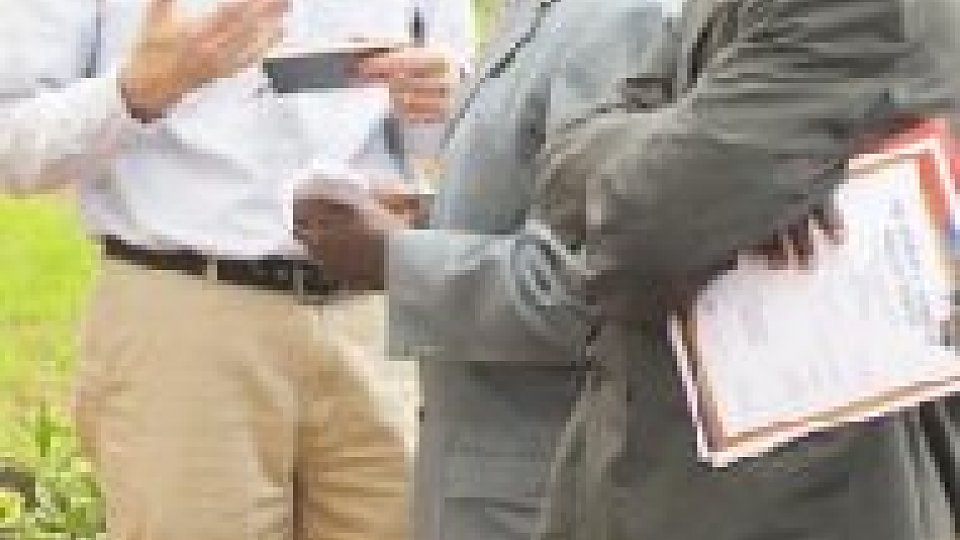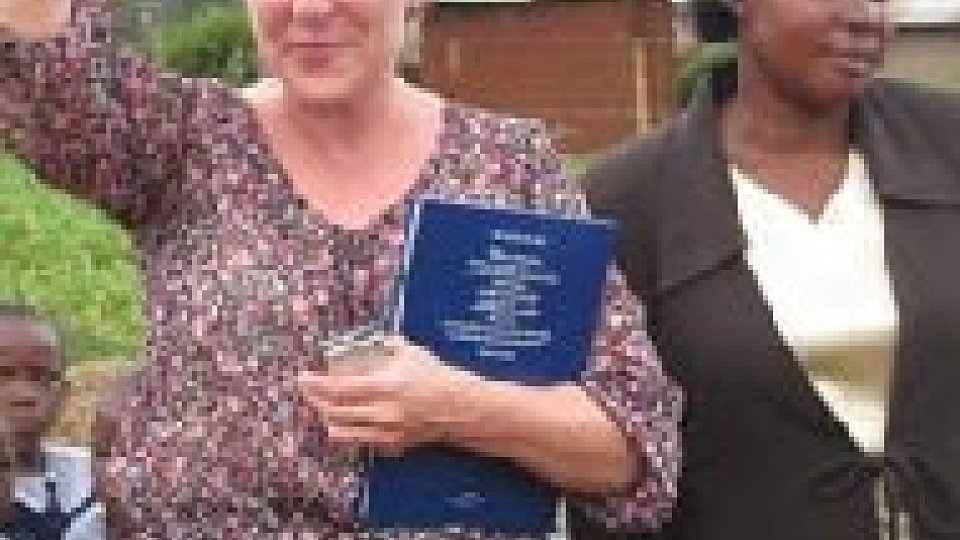Baylor, Buckner partnership plants seeds of hope in Kenya
By George Henson, Staff Writer
Baptist Standard
Published: August 27, 2009
(WACO, Texas) — One family’s desire to honor its heritage has led to a partnership between Buckner International and Baylor University that promises hope for the future of many Kenyan orphans and their families.
The Kay School and the Reynolds Ministry Center have been built on opposite sides of Kitale, Kenya, as part of Buckner’s Seed of Hope Academy. The schools will provide for the education of children in day and their families at night.
[caption id="attachment_1383" align="alignright" width="190" caption="The Reynolds Center in Kitale, Kenya, provides community services such as parenting classes."][/caption]
The Reynolds Center in Kitale, Kenya, provides community services such as parenting classes.The Kay School is Katy Reynolds’ tribute to her grandfather, Roy Kay, former president of San Marcos Baptist Academy. She considered promoting education in Africa an appropriate way to honor his legacy.
In 2007, while preparing for a trip to Africa, she shared the enterprise with her father-in-law, Herbert Reynolds, former president and then chancellor emeritus of Baylor.
Reynolds told her he always had wanted to make a trip to Africa and was proud of her commitments. Later that year after Reynolds’ death, she and her husband, Kent, decided to honor their family members by contributing to the education of orphans. Christian Mission Concerns, a philanthropic foundation, matched their gift to support the initiative.
While the Reynolds family seem to have had a pretty clear vision as to what they wanted to do all along, the route to the collaboration between Buckner and Baylor developed a bit more circuitously, but it proved to be a perfect marriage of talents.
Students inspired Professor Jon Singletary’s interest in Africa after he arrived at the Baylor School of Social Work in 2003.
[flashvideo file=http://www.buckner.org/blogvids/bap-stand-africa-vid.flv /]
“I taught a research class that first semester, and half the students were asking: ‘How do we do research on Africa? How do we find out about orphans? How do find out about HIV and AIDs? How do we find about the violence happening, or about human trafficking and slavery?’ I didn’t know a lot about it, and I was impressed that students were asking about these global issues,” he recalled.
Singletary consulted a friend in Virginia who was knowledgeable about the subject, and soon trips to Kenya and Rwanda were taken.
[caption id="attachment_1384" align="alignright" width="190" caption="Jon Singletary from the Baylor School of Social Work talks with civic leaders from Kitale at the dedication of the Reynolds Center."][/caption]
Again, a student paved the way. The student was traveling with Buckner to Africa and encouraged Singletary to make another trip.
Singletary had lunch with Katy Reynolds and learned what her family and Buckner were seeking to do, and his interest grew immediately.
He took his wife, Wendi, and oldest son, Hayden, 8, to Kitale, Kenya, for the opening of Reynolds School. The entourage for the opening included 15 people from more than a half-dozen churches from throughout the United States.
Even as he traveled to Africa, some questions remained for Singletary. He recalled that his friend from Virginia had told him: “The best way to care for children in Africa is to make sure they have connections with a family. The best way to care for children in Africa is to make sure those families are surrounded by strong communities. African culture really values a strong sense of community, and the worst thing you can do is take children out of that and put them in a large institution like an orphanage.”
“My fear was that Buckner was just running orphanages. And I was always hesitant to ask, because I almost didn’t want to know if that was what they were doing,” he confessed.
After arriving in Africa and talking more in-depth with Buckner staff, Singletary was thrilled to discover his fears were unfounded.
“I think they have it exactly right, the kinds of things are doing. Buckner is working to make sure that all they serve as living with families. They do have two residential programs that formerly were orphanages, but they’ve turned them into transitional homes,” he explained.
The program in Kitale places children with families, in most cases with extended family—aunts, uncles or cousins.
The Reynolds Center and Kay School were created to function as schools during the day and community resource centers in the evenings.
Families who gather there are foster families, and most families are involved in kinship care—looking after a child who is part of the extended family.
[caption id="attachment_1385" align="alignright" width="190" caption="Katy Reynolds holds a picture of Herbert Reynolds, her late father-in-law, at the dedication of the Reynolds Center in Kitale. She is accompanied by Rose Wasilwa, regional director in Kitale for Buckner Kenya."][/caption]
Support groups, parenting classes, grief counseling for children and suggestions for children on how to integrate with their new family are included in the program.
So, what do the Baylor social work students contribute to the program? The reinforcement that things are being done right.
“Buckner is offering programs connected to what social workers call best practices,” Singletary said. “But they haven’t really had the research to really demonstrate with more facts—How effective are our programs? How cost effective are our programs? That’s where Baylor comes in.” The students will provide that information through long-term longitudinal studies following children and families through process over a series of years.
For Singletary, the project has put faces to the facts about orphans in Africa.
“As a professor, I know the numbers and read the data that talks about the fact that there are as many as 100 million orphans most of whom live in Africa and half of their families have been affected by HIV and AIDS. 30,000 children die daily from the effects of poverty and most of those are in Africa,” he said.
“So, I keep pretty current on the numbers. But also, as is true with most people, the numbers don’t really change your heart. The numbers almost have the reverse effect; they almost just paralyze you. When you hear that number, most of us, it makes you think what can I do, what difference can I make.
“But that’s where seeing a child, playing with a child, and for me, seeing a connection between that child and a family, seeing that child has a family they love and a family that loves them comes in. I want to keep that connection strong.”








Comments